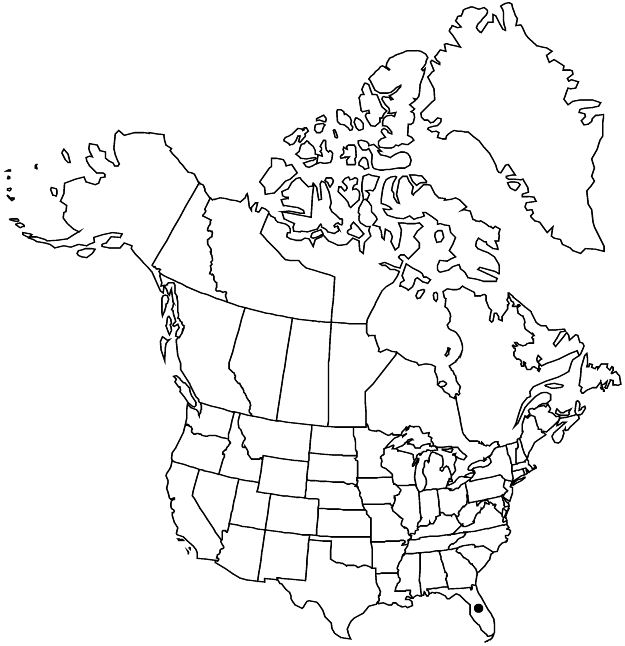Hypericum lissophloeus
Contr. Gray Herb. 189: 21. 1962.
Shrubs, erect, sparsely branched, forming dense clumps sometimes with prop-roots, to 40 dm, bark smooth and metallic-silvery, without laticifers, exfoliating in thin, curled plates. Stems: internodes 4-lined at first, soon 4-angled, then terete, dull silvery, glaucous. Leaf-blades linear-subulate to acicular, (9–) 12–17 × 0.5–0.8 mm, glaucous, base articulated, parallel or almost so, margins revolute, apex obtuse to rounded, midrib unbranched. Inflorescences narrowly cylindric, 1–3-flowered, usually with paired flowers or triads from to 9 proximal nodes. Flowers 20 mm diam.; sepals deciduous, not enclosing capsule, 5, linear-subulate, subequal, 7–8 × 0.5–0.8 mm, glaucous; petals 5, bright-yellow, obovate-spatulate, 10–12 mm; stamens deciduous, 170–220; ovary 3-merous; styles 5 mm. Capsules narrowly ovoid to ellipsoid, 6–7 × 2.5–3.5 mm. Seeds narrowly carinate, 1–1.6 mm; testa coarsely reticulate-sulcate. 2n = 18.
Phenology: Flowering summer–early fall (Jun–Oct).
Habitat: Pond and lake margins to 1.5 m deep water
Elevation: 0–10 m
Discussion
Of conservation concern.
Hypericum lissophloeus is found in Bay and Washington counties. The larger capsules, one- to three-flowered, lateral inflorescence branches, and smooth-polished, metallic bark (that exfoliates like that of Betula species) are among the features that distinguish H. lissophloeus from H. fasciculatum, H. nitidum, and their allies (H. brachyphyllum and H. chapmanii).
Selected References
None.
